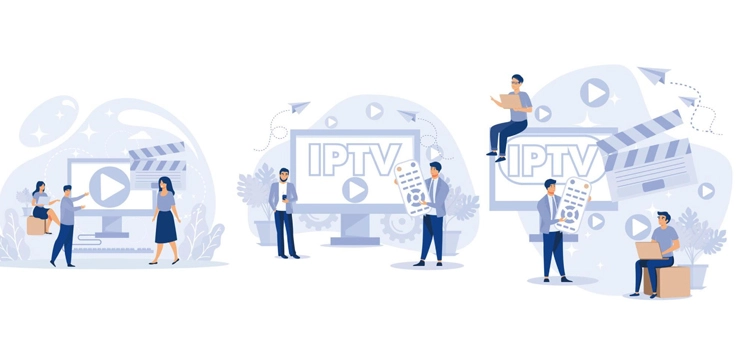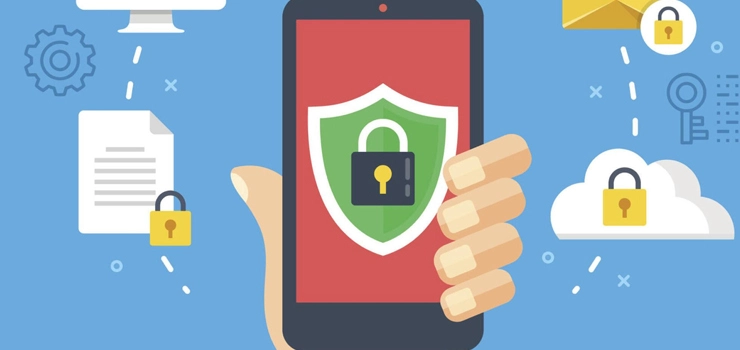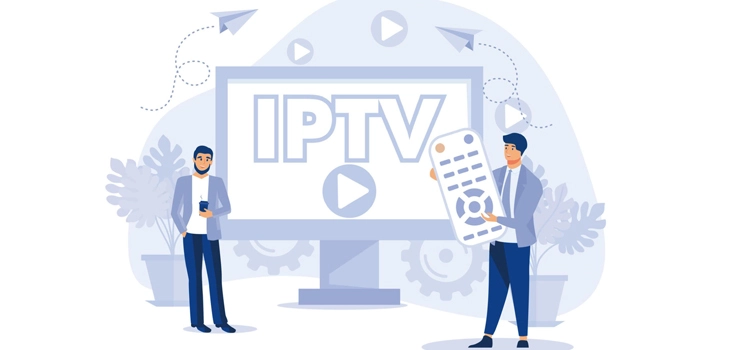Table of Contents
Introduction
In the ever-evolving digital entertainment landscape, Free IPTV’s popularity has soared, offering users a seemingly endless array of channels without the constraints of traditional cable subscriptions. However, as with any technology, convenience often comes at a cost, and in this case, users must be mindful of the potential security risks associated with free IPTV usage.
What is Free IPTV?
Free IPTV is Internet Protocol Television, a method of delivering television content over the Internet rather than traditional cable or satellite. It allows users to access various channels, including live TV, on-demand content, and more. The appeal lies in its cost-effective nature, granting viewers access to diverse programming without the hefty subscription fees.
Brief Overview of its Popularity and Usage
The surge in demand for Free IPTV can be attributed to its cost efficiency and the changing dynamics of media consumption. With an increasing number of users turning to online streaming for their entertainment needs, free IPTV services have become a popular alternative. The ability to watch content on various devices further fuels its widespread adoption, making it a convenient option for those looking to break free from traditional cable constraints.
Understanding the Landscape
To comprehend the potential security risks associated with Free IPTV, it’s crucial to investigate how these services function and the various types available to users.
How Does Free IPTV Function?
Free IPTV operates by streaming content through internet protocols, eliminating the need for traditional broadcasting infrastructure. Users can access channels and content by connecting to the service via an IPTV box or compatible device. This method allows for greater flexibility in content delivery, but it also opens the door to cybersecurity vulnerabilities.
Different Types of Free IPTV Services Available
The landscape of Free IPTV services is diverse, ranging from legitimate platforms offering free trials to unauthorized providers distributing content without proper licensing. Users may encounter browser-based services, dedicated apps, or even standalone IPTV boxes. Each type poses unique security challenges, making it imperative for users to discern between reputable services and potential threats.
Privacy Concerns
As the popularity of Free IPTV rises, so do concerns about the privacy of users who engage with these services. Understanding the potential risks to personal information is crucial for maintaining a secure digital environment.

What Personal Information Might Be at Risk?
Users may unknowingly expose sensitive personal information such as IP addresses, device details, and viewing habits when utilizing Free IPTV services. Unauthorized third parties can exploit this data, leading to privacy breaches and targeted advertising. Users need to be vigilant and take proactive measures to protect their personal information.
How Can Users Safeguard Their Privacy?
To mitigate privacy risks, users should opt for reputable Free IPTV services prioritizing data protection. Implementing virtual private networks (VPNs) can add an extra layer of security by encrypting internet connections, making it more challenging for malicious entities to intercept and misuse personal information. Regularly updating passwords and being cautious about granting unnecessary permissions contribute to a more secure streaming experience.
Malware and Phishing Threats
The lurking threats of malware and phishing attacks may overshadow the allure of Free IPTV. Understanding how these risks manifest and taking preventive measures is paramount for a safe viewing experience.
How Do Security Risks Manifest in the Form of Malware and Phishing?
Free IPTV services can expose users to malware and phishing attempts, especially those from unverified sources. Malicious actors often embed harmful code within seemingly innocuous content, compromising the security of devices. Phishing attacks may involve fraudulent websites posing as legitimate IPTV services, tricking users into divulging sensitive information.
What Steps Can Users Take to Avoid Falling Victim?
To fend off malware and phishing threats, users should refrain from downloading content from suspicious sources and only use reputable Free IPTV services. Employing reliable antivirus software can provide an added layer of protection against malware. Additionally, users should remain vigilant, avoiding clicking on unfamiliar links and scrutinizing websites for authenticity before entering personal information.
Legal Implications
As users increasingly adopt Free IPTV, it becomes imperative to recognize the potential legal consequences tied to accessing content without proper authorization. Engaging with unauthorized IPTV services may expose individuals to copyright infringement claims and legal actions from content creators. Being mindful of the legal landscape surrounding Free IPTV usage is crucial to avoid legal complications, ensuring a responsible and lawful entertainment experience. Ignorance of copyright laws and unauthorized content consumption can lead to severe penalties, underscoring the importance of staying informed and making conscientious choices in Free IPTV. By understanding the legal implications, users can navigate the IPTV landscape responsibly and enjoy their favourite content within the bounds of the law.
Are There Legal Risks Associated with Free IPTV?
Using unauthorized IPTV services to access copyrighted content may expose users to legal repercussions. Content providers and copyright holders actively monitor and take legal action against those infringing on intellectual property rights. Understanding the legal landscape surrounding Free IPTV usage is crucial for users to make informed choices about the services they engage with.
How to Ensure Compliance with Copyright Laws?
To avoid legal complications, users should opt for Free IPTV services that operate within the bounds of copyright laws. Choosing licensed and authorized platforms ensures that content creators are appropriately compensated, contributing to the sustainability of the entertainment industry. Staying informed about regional copyright regulations is essential to remain compliant while enjoying IPTV content.
Device Vulnerabilities
Ensuring the security of devices utilized for Free IPTV streaming is imperative, as vulnerabilities in these devices can expose users to significant risks. Unsecured IPTV services may compromise devices through unauthorized access, leaving users susceptible to data breaches and privacy infringements. Cybercriminals often exploit software vulnerabilities, emphasizing users’ need to keep their devices updated and protected. By overlooking the security of their streaming devices, users inadvertently open doors to potential cyber threats that can extend beyond the realm of entertainment, underscoring the importance of prioritizing device security in the Free IPTV landscape. In essence, a proactive approach to securing devices is paramount to safeguarding both personal information and the overall digital well-being of users.
How Can Free IPTV Usage Impact the Security of Your Devices?
Unsecure IPTV services may expose devices to vulnerabilities such as unauthorized access, data breaches, and exploitation of software vulnerabilities. Cybercriminals may leverage security weaknesses to gain control of devices, compromising user privacy and potentially leading to more significant cybersecurity threats.
Tips for Securing Your Devices Against Potential Threats
Users should keep their operating systems, applications, and IPTV platforms updated regularly to enhance device security. Installing reputable antivirus software provides an additional layer of defense against potential threats. Furthermore, users should exercise caution when downloading third-party apps or plugins, as these can introduce security vulnerabilities.

Network Security
The surge in Free IPTV usage can strain home networks, creating potential vulnerabilities. Increased data traffic from streaming can lead to network congestion and compromise overall security. Weak network defenses may expose users to unauthorized access and possible data interception. Prioritizing robust network security measures is crucial to safeguard against cyber threats arising from the proliferation of Free IPTV. Strengthening network encryption, updating router firmware, and setting up dedicated streaming networks are essential to mitigate these concerns.
What Risks Does Free IPTV Pose to Your Home Network?
Streaming content through Free IPTV services can strain home networks, leading to potential vulnerabilities that cybercriminals may exploit. Weak network security could result in unauthorized access, data interception, or compromised connected devices. Users must proactively secure their home networks to enjoy seamless streaming without compromising overall security.
How to Strengthen Your Network Security for Seamless Streaming
To bolster network security, users should implement solid and unique passwords for their Wi-Fi networks and regularly update router firmware. Activating encryption protocols, such as WPA3, enhance the security of wireless connections. Additionally, users can consider setting up a dedicated network for streaming devices to isolate potential security threats from other connected devices.
Content Authenticity
Ensuring the authenticity of Free IPTV content is paramount for users seeking a safe and reliable streaming experience. By validating content sources and choosing platforms with a reputation for sourcing content from legitimate providers, users can mitigate the risk of encountering manipulated or harmful materials. Reading user reviews and testimonials also serves as a valuable practice in assessing the credibility of an IPTV service, and avoiding services that offer suspiciously low-cost or pirated content, further safeguards against potential authenticity issues. A discerning approach to content verification is critical to enjoying the benefits of Free IPTV while minimizing exposure to potential risks.
How Can Users Verify the Authenticity of Free IPTV Content?
Users should prioritize platforms that source content from reputable providers and adhere to licensing agreements. Additionally, reading user reviews and testimonials can offer insights into the legitimacy of Free IPTV services. Avoiding services that offer suspiciously low-cost or pirated content is essential for safeguarding against potential authenticity issues.
Avoiding Manipulated or Harmful Content
To steer clear of manipulated or harmful content, users should exercise caution when exploring new Free IPTV services. It’s advisable to verify the source of the content, check for any red flags, such as excessive buffering or low video quality, and report any suspicious activity to the platform provider. Being discerning about the content consumed contributes to a safer streaming experience.
Best Practices for Safe Usage
Establishing a secure, Free IPTV routine requires users to prioritize reputable services, regularly update passwords, and enable two-factor authentication. Avoiding insecure devices for streaming and conducting periodic security audits contribute to a more robust defence against potential risks. By adopting these best practices, users can enjoy the benefits of Free IPTV while minimizing the likelihood of privacy breaches and cybersecurity threats.
What Steps Should Users Take to Mitigate Security Risks?
Users can start by choosing reliable and well-reviewed Free IPTV services. Regularly updating passwords, enabling two-factor authentication, and avoiding using insecure devices for streaming contribute to a more secure viewing experience. Conducting periodic security audits and staying informed about emerging threats helps users stay one step ahead of potential risks.
Establishing a Secure Free IPTV Routine
A secure, Free IPTV routine requires a combination of proactive measures and informed decision-making. Users should prioritize cybersecurity, review their streaming setup regularly, and remain vigilant to evolving threats. By adopting a secure routine, users can enjoy the benefits of free IPTV without compromising their digital safety.
Conclusion
In conclusion, while Free IPTV offers a cost-effective and convenient way to access a plethora of content, users must navigate potential security risks cautiously. From privacy concerns to legal implications and device vulnerabilities, understanding and addressing these issues is crucial. By incorporating the recommended best practices, users can create a secure IPTV routine that prioritizes enjoyment and cybersecurity. As you explore the world of Free IPTV, be mindful of your digital footprint and take proactive steps to protect your privacy and devices. For more information on technology and cybersecurity, visit Londonbtimes.com.





